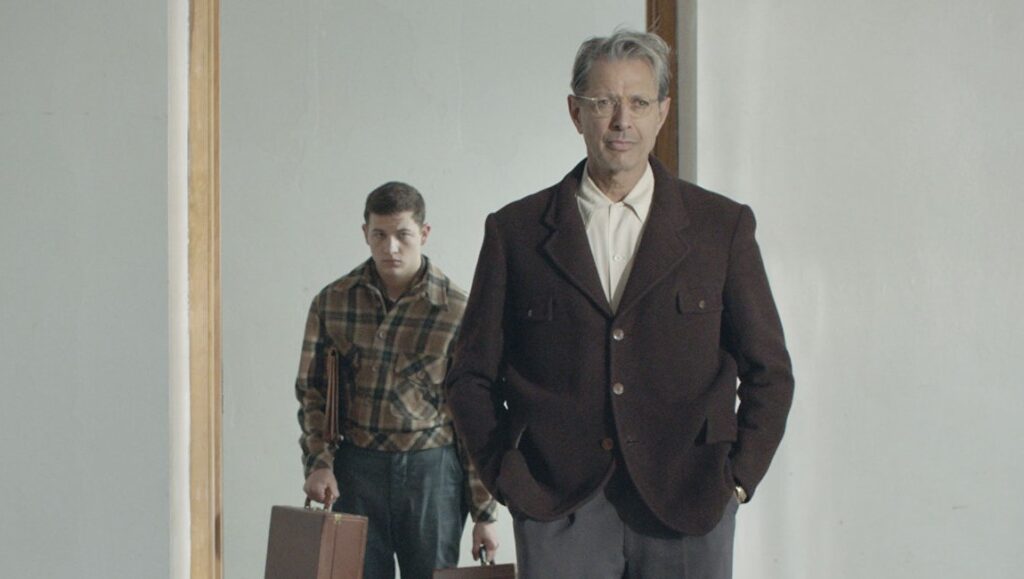After his eccentric, taskmaster father (Udo Kier) dies, Andy (Tye Sheridan) — a burly, brooding mass of tortured American masculinity — joins a renowned physician, Dr. Wallace Fiennes (Jeff Goldblum), on an increasingly fraught tour of a debunked lobotomy procedure. So begins Rick Alverson’s The Mountain, a post-WWII period piece that follows a sexually frustrated man in the thrall of a roving fraud. If that description sounds a whole lot like Paul Thomas Anderson’s The Master, that’s no coincidence; Alverson has crafted an American feature with similar concerns and comparably lofty ambitions. A literal state-of-the-nation diagnosis, The Mountain is a chamber piece writ large, observing the postwar boom of the 1950s through the eyes of a soul-sick, effectively orphaned figure. Unfolding mainly in claustrophobic, meticulously composed interiors, the film is also clinical in the extreme, with a bleached-out, colorless canvas to match.
Like Anderson before him, Alverson aims to hypnotize with his directorial control, offering no shortage of formal ostentation. Not a single moment of this almost two-hour film ever really breathes — which, in theory, dovetails well with its portrayals of suffocating patriarchal authority. What’s missing, though, is any sort of tension — formal or otherwise — that would make the film more than just an inert curiosity. (Even Denis Lavant, who emerges late in the story as the father of one of Fiennes’s hapless patients, is unable to shatter the icy, mannered repose of Alverson’s film.) The Mountain eventually arrives at a point of (generational) abandonment: two youths left to gaze at the frozen wasteland of their future. Rather than plumb the depths of this anguish, however, Alverson is content to merely gesture towards it. Here, as in the rest of the film, he leaves the viewer out in the cold.
Published as part of July 2019’s Before We Vanish.


Comments are closed.